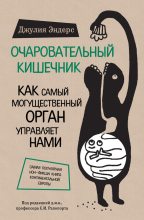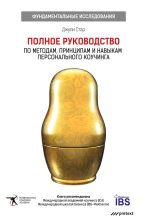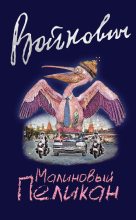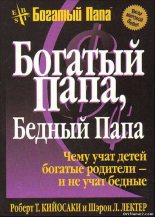formal) : Saranghapanida (more respectful) : Norul sarang hae (male to female in casual relationship) : Tangshini choayo ("I like you, in a romantic way") Kpele : I walikana Kurdish : Ez te hezdikhem
Lao : Khoi hak jao : Khoi mak jao lai ("I like you very much") : Khoi hak jao lai ("I love you very much") : Khoi mak jao (This means "I prefer you", but is used for "I love you".) Latin : Te amo : Vos amo Latin (old) : (Ego) Amo te ('Ego', for emphasis) Latvian : Es tevi milu (pronounced 'es tevy meelu') ('i in 'milu' has a line over it, a 'long i') : Es milu tevi (less common) Lebanese : Bahibak Lingala : Nalingi yo Lisbon lingo : Gramo-te bue', chavalinha! Lithuanian : Tave myliu (Ta-ve mee-lyu) : Ash mir lutavah Lojban : Mi do prami Luo : Aheri Luxembourgish : Ech hun dech ga"r
Maa : Ilolenge Macedonian : Te sakam (a little stronger than "I like you") : Te ljubam ("I really love you") : Jas te sakam ('j' sounds like 'y' in May) : Pozdrav ("Greetings") Madrid lingo : Me molas, Tronca! Maiese : Wa wa Malay/Indonesian : Saya cintakan kamu (grammatically correct) : Saya cinta akan kamu(expanded version of above) : Saya sayangkan kamu (grammatically correct) : Saya sayang akan kamu (expanded version) : Aku cinta pada mu (most direct translation) : Saya cintakan awak : Aku cinta pada kau : Saya cinta pada mu (best, most commonly used) : Saya sayangkan engkau ('engkau' often shortened to 'kau', 'engkau' is informal form and should only be used if you know the person _really_ well) : Saya sayang pada mu : Aku sayangkan engkau : Saya sayang pada mu : Aku menyintai mu : Aku menyayangi mu : Aku kasih pada mu : Aku jatuh cinta pada mu Malayalam : Ngan ninne snaehikkunnu : Njyaan ninne' preetikyunnu : Njyaan ninne' mohikyunnu Maltese : Jien inhobbok Marathi : Mi tuzya var prem karato : Me tujhashi prem karto (male to female) : Me tujhashi prem karte (female to male) Marshallese : Yokwe yuk (sort of multi-purpose, like Aloha, literally "Love to you, my friend") Mikmaq : Kesalul Mohawk : Konoronhkwa Mokilese : Ngoah mweoku kaua Moroccan : Kanbhik (both mean the same, but spoken) : Kanhebek (in different cities) Morse Code : .. ._.. ___ ..._ . _.__ ___ .._ : ___.. ___.. (Literally "88", a Morse Code shorthand meaning "Love, hugs & kisses to you.") : __... ...__ (Literally "73", a Morse Code shorthand for non romantic friends meaning "Best regards.")
Nahuatl : Ni mitz tla-zo-tla (the 'a's are "schwa"s) Navaho : Ayor anosh'ni Ndebele : Niyakutanda Norwegian : Jeg elsker deg (Bokmaal) : Eg elskar deg (Nynorsk) Nyanja : Ninatemba
Op : Op lopveop yopuop Oriya : Mun tumaku bhala pae ('n' is nasal and not pronounced) Osetian : Aez dae warzyn
Pampangang : Kaluguran daka
(or Kapampangang) Papiamento : Mi ta stima'bo Pig Latin : Ie ovele ouye Polish : Kocham cie : Kocham ciebie : Ja cie kocham (slang, not commonly used) Portuguese : Eu amo-te (pronounced "Eu amu'-tee") : Estou apaixonado por ti (male to female, "I'm in love with you", pronounced "Esto^ hapa'isho^na'duu puur ti'") : Estou apaixonada por ti (female to male, "I'm in love with you", pronounced "Esto^ hapa'isho^na'daa puur ti'") : Eu adoro-te ("I adore you.") : Tu e's o meu amor ("You are my love.") : Eu gosto de ti ("I like you.") : Quero-te ("I want you", understood as romantic feelings but may have sexual tones) : Eu desejo-te ("I desire you", may have sexual tones) : Eu preciso de ti ("I need you.") : Eu quero fazer amor contigo ("I want to make love with you.") Portuguese lingo : Gramo-te `a brava! ("I love you very much", literally "I love you wildly") Pulaar : Mbe de yid ma (mbe: d: yidh ma) (Pronounced as two words, "Mbe deyidma". 'b' and second 'd' have bars through the stems indicating affrication, the ':' indicate minute pauses) Punjabi : Main tainu pyar karna : Mai taunu pyar karda : Mein nu terey na^l piyaar ay (pronounced: "meinu therei naal piya'rei", th as in bath) ' = stressed syllable Pushto : Mung jane' (pronounced: "puxto: mu'ng jane'") : Pa ta mayan yem
Quenya : Tye-mela'ne
Raetoromanisch : Te amo Romanian : Te iubesc : Te ador (stronger) Rotuman : Gou 'oaf se 'a"e (The ' mark is the "glottal stop" as in Hawaiian. The G is actually the "ng" sound, as in "singing".) Russian : Ya vas lyublyu (old fashioned) : Ya tyebya lyublyu (best) : Ya lyublyu vas (old fashioned) : Ya lyublyu tyebya
Saami : Mun ra'hkistan du Samoan : Ou te alofa outou : Ou te alofa ia te oe : Talo'fa ia te oe ("Hello, from me to you") Sanskrit : Tvayi snihyaami : Mama tvayi aasaktirasti (I have love/longing in you) Scot-Gaelic : Tha gradh agam ort Serbian (formal) : Ja vas volim (used in proper speech) : Volim vas (used in common speech) : Ljubim te (in todays useage, "I kiss you", 'lj' pronounced like 'll' in Spanish, one sound, 'ly'ish) Serbian (familiar) : Ja te volim (used in proper speech) : Volim te (used in common speech) Serbian (old) : Ljubim te (may still be found in poetry) Serbocroatian : Volim te : Ljubim te : Ja te volim ('j' sounds like 'y' in May) Sesotho(Southern Sotho) : Ke a mo rata Shona : Ndinokuda Sinhala : Mama oya'ta a'darei Sioux : Techihhila Slovak : Lubim ta (L pronounced similarly to 'll' in Spanish) : Mam ta rad (male to female) : Mam ta rada (female to male) : Milujem ta (all 't's spoken softly like 'ty') Slovene : Ljubim te Solresol : do-re mi-la-si do-mi Somali : Waan ku Jecelahay Spanish : Te amo : Te quiero : Te adoro ("I adore you") : Te deseo ("I desire you") : Me antojis ("I crave you") Srilankan : Mama oyata arderyi Swahili : Nakupenda : Naku penda (followed by the person's name) : Ninikupenda : Dholu'o Swedish : Jag a"lskar dig ('dig' pronounced like 'day') Syrian/Lebanese : Bhebbek (male to female) : Bhebbak (female to male)
Tagalog : Mahal kita Tahitian : Ua here au ia oe : Ua here vau ia oe Taiwanese : Wa I Lee Tamil : Naan unnai kadalikiren : Nan unnai kathalikaren : Ni yaanai kaadli karen ("You love me") : N^an unnaki kathalikkinren ("I love you") : Nam vi'rmberem Telugu : Ninnu premistunnanu : Neenu ninnu pra'mistu'nnanu : Nenu ninnu premistunnanu Thai (formal) : Phom rak khun (male to female) : Phom ruk koon ( " ) : Ch'an rak khun (female to male) : Chun ruk koon ( " ) Thai : Khao raak thoe (affectionate, sweet, loving) Timerio : 1-80-17 Tongan : 'Ofa 'atu (I love you) : 'Oku ou fie manako'i koe (I want to marry you) (The ' mark is the "glottal stop" as in Hawaiian.) Tswana : Dumela Tunisian : Ha eh bak Turkish (formal) : Sizi seviyorum Turkish : Seni seviyorum : Seni begeniyorum ("I adore you") (g has a bar on it) : Senden ho$laniyorum (Sound of '$' is like 'sh' in English. Must be a point under 'S'. The 'i' must be without a point.) Twi : Me dowapaa
Ukrainian : Ya tebe kokhayu : Ja tebe kokhaju (real true love) : Ja vas kokhaju : Ja pokokhav tebe : Ja pokokhav vas Urdu : Main tumse muhabbat karta hoon : Mujhe tumse mohabbat hai : Mujge tumae mahabbat hai : Kam prem kartahai : Muje se mu habbat hai : Mujhe tum se piyaar hai (pronounced: "mujhei' Oo'm se' piya'r ha'e") : Mujhe tum se muhabbat hai (pronounced: "mujhe'i Oo'm se' mohub:u'th ha'e", th as in bath) ' = stressed syllable, Oo' = o like in bold
Vai : Na lia Vdrmldndska : Du dr gvrgo te mdg Vietnamese : Toi yeu em : Anh ye^u em (male to female, or older to younger, romantic) : Em ye^u anh (female to male, or younger to older, romantic) : Con thu+o+ng ba (kid to father) : Ba thu+o+ng con (father to kid) : Con thu+o+ng ma' (kid to mother) : Ma' thu+o+ng con (mother to kid) : Cha'u thu+o+ng o^ng (grandkid to grandpa) : O^ng thu+o+ng cha'u (grandpa to grandkid) : Ba` thu+o+ng cha'u (grandkid to grandma) : Cha'u thu+o+ng ba` (grandma to grandkid) : Anh thu+o+ng em (big brother to younger sister or brother) : Chi. thu+o+ng em (big sister to younger sister or brother) : Em thu+o+ng anh (younger sister/brother to big brother) : Em thu+o+ng chi. (younger sister/brother to big sister) Volapu"k : La"fob oli Vulcan : Wani ra yana ro aisha
Walloon : Rwy'n dy garu di : Yr wyf i yn dy garu di (chwi) Wolof : Da ma la nope : Da ma la nop (da ma'lanop)
Yiddish : Ikh hob dikh lib : Ich libe dich : Ich han dich lib : Kh'hob dikh lib : Kh'ob dikh holt : Ikh bin in dir farlibt Yoruba : Mo Feran e Yucatec Maya : 'in k'aatech (the love of lovers) : In yakumech : 'in yabitmech (the love of family, which lovers can also feel; it indicates more a desire to spoil and protect the other person) Yugoslavian : Ja te volim
Zazi : Ezhele hezdege (sp?) Zulu : Mena tanda wena : Ngiyakuthanda! Zuni : Tom ho' ichema
Explanation of Accents ---------------------a' -> 'a' with the acute accent (') over it, accent aigu (ASCII code 160) a" -> 'a' with two dots (Umlaut) (ASCII code 132) a^ -> elongated vowel (e.g. 2 a's) a~ -> 'a' with a tilde(~) over it e^ -> 'e' with a carot(^) over it e' -> 'e' with the acute accent (') over it (ASCII code 130) n~ -> 'n' with a tilde(~) over it o~ -> 'o' with a tilde(~) over it
Explanation of Languages -----------------------Afrikaans -> spoken by people of Dutch heritage in South Africa Alentejano -> An accented form of Portuguese spoken in the Alentejo region of Portugal (the part of the country south of the river Tagus). Alsacien -> French/German dialect (live in France, but speak like Germans) Amharic -> Official language spoken in Ethiopia. Just one of over 80 languages spoken there. Apache -> North American Indian Nation rangeing from the plains states to the eastern Rocky Mountains and from the Canadian to Mexican borders Arabic -> language spoken in the Arab countries including but not limited to Bahrain, Egypt, Iraq, Jordan, Kuwait, Libya, Morocco, Saudi Arabia, Sudan, and the region of Palestine. Ashanti/Akan/Twi-> Ashanti is the most popular and predominate of many dialects spoken in Ghana. The Ghanan language is generally refered to as either Akan or Twi. Assamese -> language spoken in the state of Assam, India Bassa -> language spoken in Africa Batak -> language spoken in the northern Sumatra province of Indonesia Bavarian -> language spoken in the state of Bavaria, southern Germany (actually a German dialect) Bemba -> language spoken in Africa Bengali -> language spoken in the state of West Bengal, India, as well as almost all people of Bangladesh Betazed -> Spoken in Star Trek on planet Betazed Bicol -> dialect spoken in the Philippines Braille -> The alphabet represented by patterns of raised dots. It is 'read' by touch. Basque -> language spoken in the Basque region of Spain Cajun -> French dialect spoken by people who migrated from Acadia, Canada, to the Louisiana, USA, area. Acadia is in an Atlantic province. Catalan -> language spoken in a region in the north-east of Spain named Catalonia. It is also spoken in the Balearic Islands, in Andorra and in some small villages of Sardinia and the south of France. Cebuano -> language spoken in Philippines near the town of Cebu Central Yup'ik -> language spoken by the indigenous Eskimo people of southwestern Alaska Cherokee -> North American Indian tribe Cheyenne -> North American Indian tribe, part of the Apache Nation Chichewa -> language spoken in Malawi, Central Africa Chickasaw -> North American Indian tribe (southeastern Oklahoma) Chinese Amoy -> language spoken on Taiwan, an island off Fukien Province in southeast China, and Singapore Cantonese -> language spoken in the region around Guangzhou including Hong Kong and also in Malaysia Mandarin/ -> The official language of China Putonghua litterally 'common language' also spoken by native Chinese in Singapore and Malaysia Wu -> language spoken in Jiangsu Province Creol -> French dialect spoken by people from Haiti. It is basicly French with a







